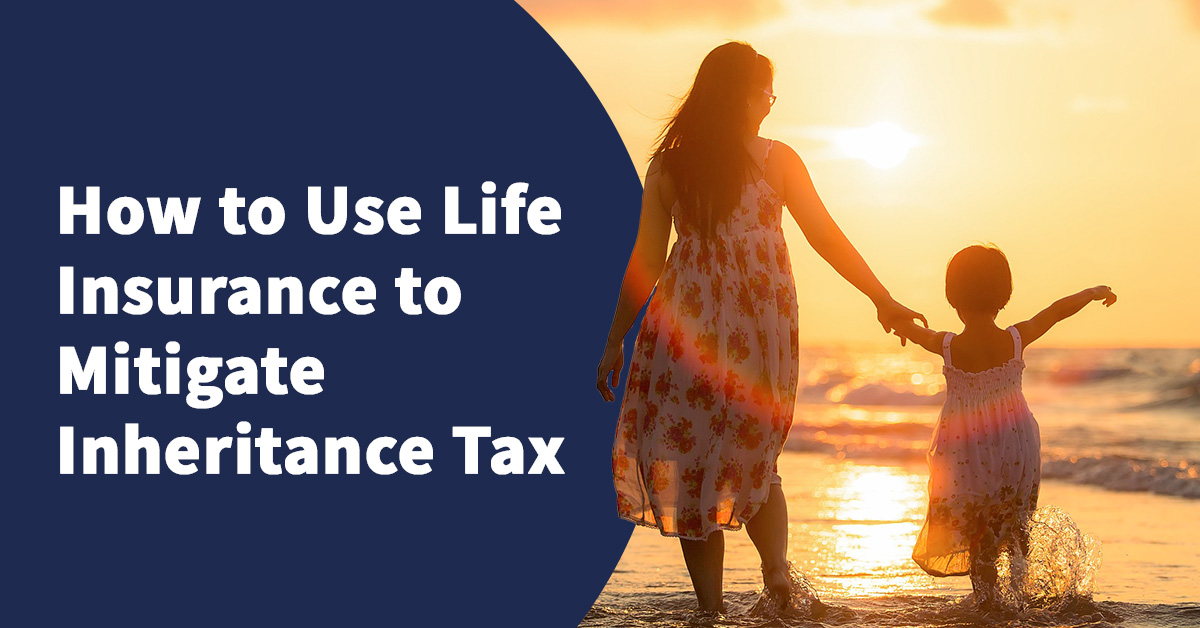LIFE INSURANCE, CRITICAL ILLNESS INSURANCE, INCOME PROTECTION, MORTGAGE PROTECTION, IHT INSURANCE AND MORE…
You can pretty much insure against anything and everything nowadays. But which cover do you really need? And how do these policies work?
Life insurance
Life insurance can pay your dependents money as a lump sum or as regular payments if you die. A life insurance policy is a contract with an insurance company. In exchange for premium payments, it’s designed to provide you with the reassurance that your dependents will be looked after if you’re no longer there to provide. When comparing life insuarance policies, you can choose how much a policy will pay out, how long the policy lasts for and who the payout goes to if you die. In chosing the sum assured it can very much be a balancing act between how much you of a premium you are willing to pay and the lump sum required for your beneficiaries.
The most basic type of life insurance is called term insurance, where you choose the amount you want to be insured for and the period for which you want cover. In many instances the term will be set to a date such as age 65, providing cover until you have accumulated wealth enough to look after dependents. If you die within the term, the policy pays out to your beneficiaries. If you don’t die during the term, the policy doesn’t pay out and the premiums you’ve paid are not returned to you.
You should check whether you have an employee package that includes ‘death in service’ benefits, if so, you might not need life insurance or you may require less than you think. Usually the death in service cover will be a percenatge of your basic salary. Such as 3 x basic. However usually this will only be payable whilst you are employed by the company.
Critical illness Insurance
Critical illnesses can cause financial devastation even for those with health insurance. As usally health/medical insuarnce does not cover serious ill health such as heart disease, cancer or stroke.
Critical Illness insurance is type of medical insurance that provides the insured with a lump sum payment in the event they are diagnosed with a specified condition or illness listed in the policy terms. If you develop cancer, for example, you will receive a lump-sum cash payment to cover medical bills and any other expenses. Essentially it acts as a financial safety net.
Critical Illness Insurance can be purchased as a stand-alone policy, or you may choose to add it to a life insurance or mortgage protection policy
Note however that existing medical conditions might not be covered.
Income protection insurance (IPI)
Income protection insurance replaces the income lost through your inability to work due to injury or sickness. It is an important consideration for anyone who relies on an income. It is especially suitable for self-employed people or small business owners.
One of the biggest fears for many people is not being able to pay the mortgage or meet other financial commitmentsif they are made redundant or unable to work due to illness or accident. Income protection pays out a regular tax-free replacement income if you are unable to work. So it can enable you to continue to pay the mortgage, as well as the daily costs of living. There are two types of income protection insurance – long and short term.
Long term policies cover a wide range of illnesses and accidents. They will usually pay out until you can return to work, no matter how long that takes.
Short term income protection (STIP) on the other hand, will usually only cover you for up to 12 months if you can’t work. short term income protection policies also cover fewer illnesses and injuries but they tend to cost less than long term policies.
Mortgage Protection insurance (MPI)
Mortgage Payment Protection Insurance (MPPI) is designed to cover the cost of your mortgage payments in the event that an accident, sickness or unemployment stops you from working.
Your home may be one of the biggest investments you’ll ever make, and your family probably may depend on your income to help make the mortgage payments.
Mortgage protection insurance protects you as a borrower. This insurance typically covers your mortgage payment for a certain period of time if you lose your job or become disabled, or it pays it off when you die.
If you are in good health, relatively secure in your job, have no unusual lifestyle risks, and are adequately otherwise insured you may not want or need to purchase this type of insurance.
IHT insurance
Life cover is often taken out to protect families or partners in the event of the main breadwinner’s death. But many older people sign up for life insurance so that their relatives have enough money to pay any inheritance tax bills that may be liable upon their death. This can make the difference between being able to keep a family home and having to sell it to cover the tax bill, for example.
To ensure the proceeds of the life insurance policy are not included in your estate, though, it’s vital that the policy be written in trust here are also a number of other benefits to writing your policy in trust. The money paid out from the life insurance will not have to go through probate, which can be a slow process. This means that your dependants should have access to it much faster after you die By taking out a policy which is sufficient to cover your estimated inheritance tax bill and writing it into trust, your family could have access to a lump sum with which to pay the inheritance tax bill
Level-term life insurance policies
A level-term policy pays out a lump sum if you die within the specified term. The amount you’re covered for remains level throughout the term. The monthly or annual premiums you pay usually stay the same, too.
Whole life insurance
Whole of life insurance is a type of permanent life insurance designed to provide lifetime coverage. Because of the lifetime coverage period, whole of life usually has higher premium payments than term life. Unlike term, whole life has a cash value, which functions as a savings component, although typically premiums will be more expensive.
Decreasing-term life insurance policies
With a decreasing-term policy, the amount you’re covered for decreases over the term of the policy. These policies are often used to cover a debt that reduces over time, such as a repayment mortgage.
Premiums are usually significantly cheaper than for level-term cover as the amount insured reduces as time goes on. Decreasing-term insurance policies can also be used for inheritance tax planning purposes.
Which insurance is right for you?
Which insurance you require will depend on your own set of circumstances, your health, your assets and liabilities and the needs of any dependents. Insurance can be expensive but the expense of not having insurance could be far greater than the expense of living without it.
Find out how we can help you
If you would like to understand more about this topic get in touch
Related posts
 Published On: November 7, 2023|1.5 min read|
Published On: November 7, 2023|1.5 min read|Ever thought about the potential taxes on your life insurance?
Ever thought about the potential taxes on your life insurance? Here's how to sidestep it, to ensure your loved ones get the full benefit.
Read more
 Published On: January 20, 2022|4.9 min read|
Published On: January 20, 2022|4.9 min read|How to Use Life Insurance to Mitigate Inheritance Tax
If your total combined assets including your life insurance exceed the inheritance tax threshold, your beneficiaries will have to pay the inheritance tax due before they are able to gain access to your estate. The life insurance, alongside other assets, will also need to go through probate, which can take months, if not longer to complete. Luckily, there are ways to mitigate this.
Read more
 Published On: March 11, 2018|3.5 min read|
Published On: March 11, 2018|3.5 min read|6 reasons why all expats need life insurance
Life insurance for expats in Dubai and the UAEOf course no amount of money can ever replace a person.But life insurance polices can provide cash when it’s needed the most. [...]
Read more









